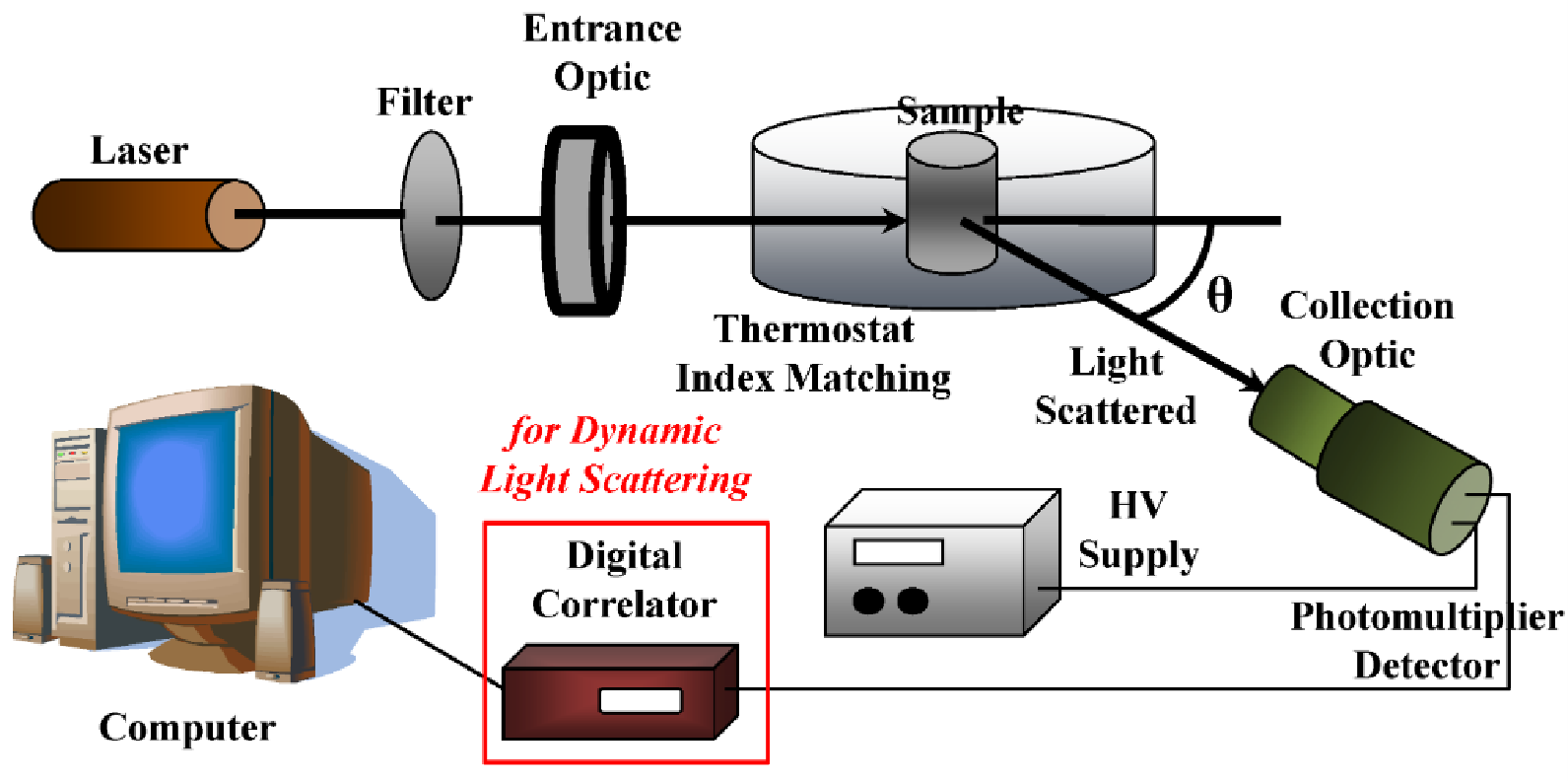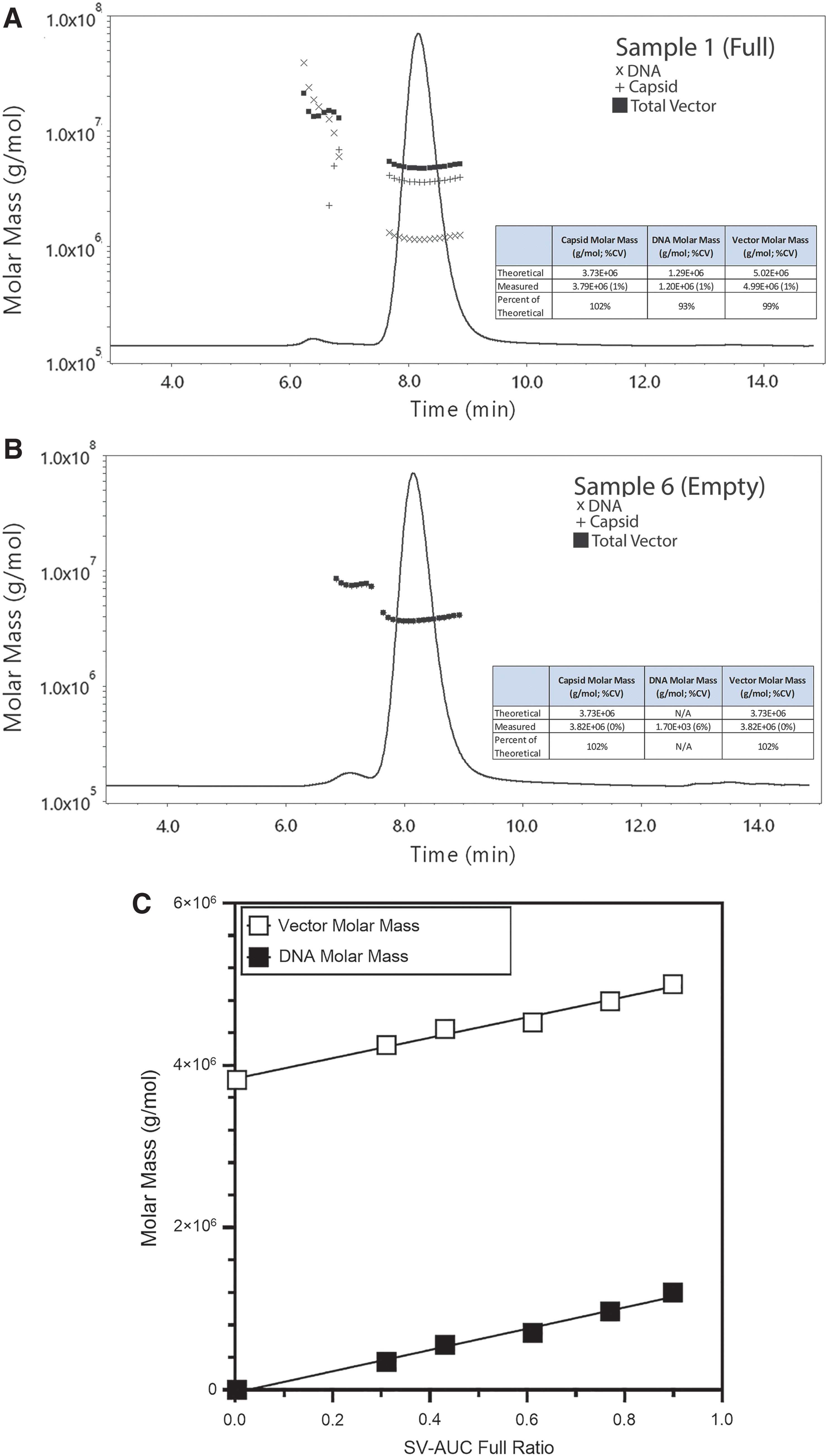Light Scattering For Molecular Weight Determination Service
Light scattering is a powerful analytical technique used for the precise determination of molecular weight and size in complex macromolecular solutions. This method has become indispensable for researchers and industries involved in the characterization of proteins, polymers, and other high-molecular-weight compounds. MtoZ Biolabs offers state-of-the-art Light Scattering For Molecular Weight Determination Service, which provide fast, reliable, and non-destructive analysis of molecular weight, size distribution, and structural properties.
Light scattering relies on the interaction between light and particles in solution. When a sample is exposed to light, the scattered light intensity is measured at various angles to obtain valuable information about the size, shape, and molecular weight of the particles. This technique is particularly useful for analyzing large biomolecules, such as proteins, polysaccharides, and other complex biopolymers, in both solution and gel forms. Unlike traditional mass spectrometry methods, light scattering does not require chemical modification or extensive sample preparation, making it an ideal tool for high-throughput analysis of native proteins and other large molecules.
Service at MtoZ Biolabs
MtoZ Biolabs, an integrated Chromatography and Mass Spectrometry (MS) Services Provider, provides advanced proteomics, metabolomics, and biopharmaceutical analysis services to researchers in biochemistry, biotechnology, and biopharmaceutical fields. Our ultimate aim is to provide more rapid, high-throughput, and cost-effective analysis, with exceptional data quality and minimal sample consumption. At MtoZ Biolabs, we leverage the latest light scattering technologies, including Dynamic Light Scattering (DLS) and Static Light Scattering (SLS), to offer comprehensive molecular weight determination services. These complementary techniques enable us to obtain precise molecular characterizations of your samples, whether you are studying small peptides or large, complex proteins or polymers.
1. Dynamic Light Scattering (DLS)
DLS is a powerful technique for measuring the size distribution of particles in solution. It works by analyzing the time-dependent fluctuations in scattered light intensity caused by the Brownian motion of particles. The speed at which particles move in solution is directly related to their size; smaller particles diffuse faster, while larger particles diffuse slower. By measuring these fluctuations, DLS can provide the hydrodynamic radius of particles in the sample, allowing for accurate size distribution analysis. DLS is particularly well-suited for studying nanoparticles, proteins, and molecules in solution, making it ideal for applications such as protein aggregation studies, formulation development, and quality control of biologics.
2. Static Light Scattering (SLS)
SLS, on the other hand, is focused on the measurement of scattered light at a fixed angle. Unlike DLS, which examines the time-dependent fluctuations in light scattering, SLS measures the intensity of light scattered by particles in equilibrium. From this, it can provide information about the molecular weight, size, and shape of macromolecules. SLS is particularly useful for determining the absolute molecular weight of large molecules like proteins, polymers, and polysaccharides in solution, as it does not rely on calibration standards. It is often used in combination with DLS to obtain both size and molecular weight data, offering a more complete picture of the sample's characteristics.

Figure 1. Sketch of a (Static and Dynamic) Light Scattering Setup
Our light scattering services provide highly accurate and reproducible results that are essential for a variety of applications, including drug development, protein characterization, and polymer analysis. By combining DLS and SLS, we can provide a comprehensive profile of your sample, from size distribution to molecular weight, ensuring that your research or product development is based on the highest quality data. Whether you are working with complex biologics, synthetic polymers, or other macromolecules, our team of experts is dedicated to delivering fast, reliable, and precise results that meet your specific needs. If you are interested in our services, please feel free to contact us.
Service Advantages
1. Advance Analysis Platform: MtoZ Biolabs established an advanced Light Scattering For Molecular Weight Determination Service platform, guaranteeing reliable, fast, and highly accurate analysis service.
2. One-Time-Charge: Our pricing is transparent, no hidden fees or additional costs.
3. High-Data-Quality: Deep data coverage with strict data quality control. AI-powered bioinformatics platform integrates all data of light scattering for molecular weight determination, providing clients with a comprehensive data report.
4. Simple Sample Preparation: Our service requires only simple sample preparation, and even natural samples can be analyzed without sample preparation.
5. Efficient and Automated Workflow: The light scattering analysis is fully automated, ensuring ease of use and efficient operation. The intuitive process minimizes human error and maximizes throughput, providing consistent and reliable results for large sample sets.
6. Non-Destructive Analysis: Light scattering is a non-destructive technique, meaning the sample remains unchanged throughout the analysis. This allows for repeated measurements on the same sample, ensuring greater reliability and flexibility in your research.
Applications
1. Protein Characterization
Light scattering is extensively used for profiling proteins, offering detailed insights into their size, molecular weight, and aggregation state. This information is essential for understanding protein functionality and stability.
2. Biopharmaceuticals
In the biopharmaceutical industry, light scattering ensures the quality and consistency of protein-based therapeutics. Accurate molecular weight determination is crucial for verifying the purity and homogeneity of therapeutic proteins.
3. Structural Biology
Light scattering serves as a complementary tool in structural biology, providing initial molecular weight and size data. This aids in the selection of appropriate analytical techniques like X-ray crystallography and NMR spectroscopy.
4. Research and Development
In both academic and industrial research, light scattering is used to investigate protein-protein interactions, complex formations, and conformational changes, which are essential for drug discovery and the development of new therapeutic agents.
Case Study
Accurately determine the molar mass of capsid and DNA in full and empty AAV particles using light scattering technology

Troxell, B. et al. Hum Gene Ther. 2023.
FAQ
Q: What are the main limitations of light scattering for molecular weight determination?
One major limitation of light scattering for molecular weight determination is its dependence on the physical properties of the sample, such as particle size, shape, and refractive index. Variations in these properties can lead to measurement errors. Additionally, sample concentration plays a critical role—both too high or too low concentrations can affect scattering results. To ensure accurate molecular weight determination, it is essential to carefully control and adjust the sample concentration, physical properties, and measurement conditions.
MtoZ Biolabs, an integrated chromatography and mass spectrometry (MS) services provider.
Related Services
SEC-MALS Molecular Weight Determination Service
How to order?







